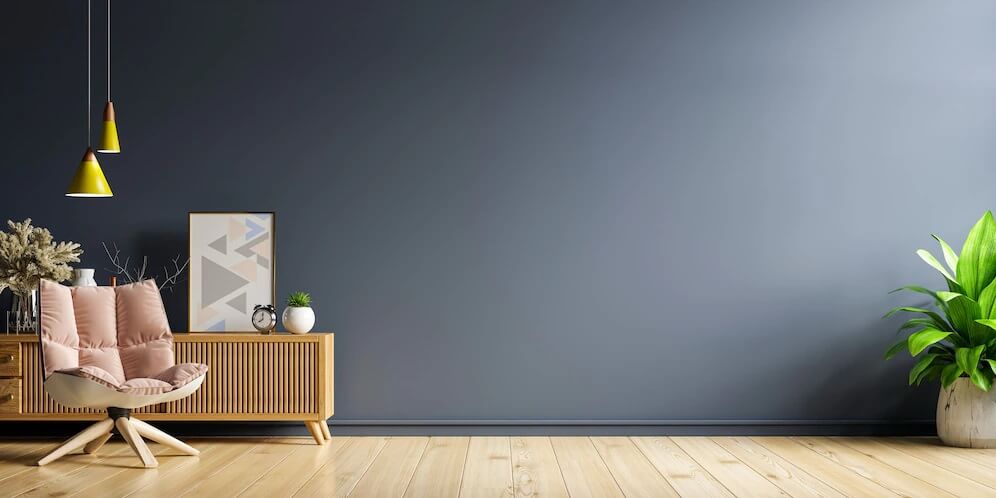How to Reduce Floor Noise
Has your downstairs neighbor complained that you are making noise for them as you walk around your apartment? You should strive to reduce the floor noise so you can live in harmony with them.
How do you reduce floor noise? Here is how to go about it:
Reducing noise on a wooden floor
If you have a wooden floor, your neighbors must have told you that they hear clacking and creaking noises when you are in the house. And you have nothing to be ashamed of, as this is normal.

Thankfully, there are plenty of ways to reduce noise on a wooden floor. These ways include:
Apply talcum powder
If there are only minor creaks on the floor, sprinkle some talcum powder on the cracks between the hardwood planks.
You can use a broom, putty knife, or the tip of your shoe.
Once you are done, walk across the planks a couple of times so that the powder goes inside the joints, where they will muffle and solve the creaking sounds.
Secure the noisy planks with screws
If you can see the wooden planks physically moving, you should secure them in place using screws.
If this is the first time you are doing it, you should note that you have to drill a pilot hole then sink a screw-down in the loose wooden planks so that the heads of the screws get slightly buried beyond the surface of the wooden plank.
Tap the loose planks
If there are gaps between the wooden pieces that might have been left at the time of installation, connect them tightly by tapping the loose planks closer together with a rubber mallet or any other equally effective tool.
Use a rubber floor mat.
Rubber floor mats come in handy when you have noisy machines in your houses, such as washers, dryers, televisions, and dishwashers.
When you place these mats directly below the machine, they muffle the vibrations, reducing noise and impact.
You can buy plenty of padded flooring mats, such as Elephant Bart mat and others.
Add interlocking flooring
Although, they aren’t the most attractive pieces, especially in an apartment, if you don’t regularly have guests over that you can be conscious of the interlocking flooring in the house, you should go ahead and add them to your floor.
All you need to do is buy enough units that will cover the entire floor, then lay them on your floor, while interlocking the sides to connect them.
Add a thick pad and carpeting.
A thick pad and carpeting on top will go a long way towards preventing your neighbor from complaining about your noisy footsteps.
As you can tell, the thicker the padding, the more the noise you reduce, so you should aim to go for the thickest padding you can afford.
How to reduce noise on a concrete floor
Concrete floors carry a lot of mass, so they are often highly efficient at keeping out most noise. Unfortunately, the steel supports tend to transmit impact noise, which can be a bother to your downstairs neighbor.
To reduce noise on a concrete floor, you need to add an absorbent layer to deaden the impact. Thankfully, a simple combination of underlay and carpet is enough.
If this doesn’t bring the sanity you are looking for, buy an acoustic underlay that is denser; hence it absorbs more vibrations.
In extreme cases, place interlocking mats that provide you with the needed cushioning.
If you can afford it, you can install a floating floor. This is a floor made up of membranes bonded to the back of the interlocking flooring, and it blocks the impact sound before it gets to the concrete floor.
For the best outcome, let the work be handled by an experienced professional who will install the floating floor without fixing it directly to the concrete sub-floor.
How to reduce noise on a tile floor

Even if tile floors are even thicker than concrete floors due to the added tile layer, the noise can still sometimes reach your downstairs neighbor. Thankfully, there are plenty of ways you can reduce the noise. Some of these ways include:
Place a carpet on the floor
To get the most from the carpet, you have to go for a high-quality one with thick padding and take most of the abuse. One of the best I’ve come across is the Stinger Roadkill Carpet.
Its high density, semi-closed nature with mass butyl vinyl layer makes it the perfect choice when your neighbor can hear you even when you are walking around without your shoes on.
Lay an acoustic rubber mat
The mat’s denser nature makes it a perfect piece for dampening most impact sounds. If you have already placed a thick carpet on the floor, but your neighbor is still complaining of you stomping, cover the floor with an acoustic rubber mat.
Of course, you should go for a high-quality mat such as Rubber-Cal Recycled Floor Mat that has been proven to absorb any shock resulting from exercising, running, and walking.
The mat has anti-slip properties, so you don’t have to worry about slipping as you are walking or cleaning the house.
Use mass loaded vinyl (MLV)
Also known as sound deadening vinyl flooring, MLV adds additional mass to the floor, preventing the soundwaves from getting out of your apartment and being a bother to your neighbor.
The cool thing is that besides the flooring being highly effective, it’s also affordable and easy to install.



